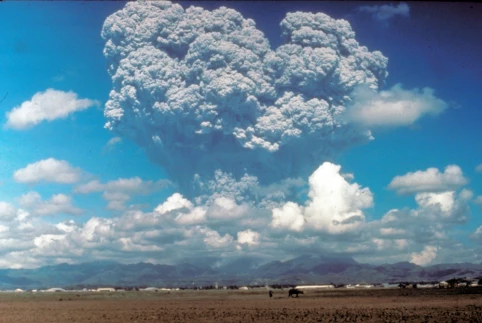A group of scientists headed by James Hansen, the renowned former NASA climate researcher has said the controversial concept of purposely deflecting the sun’s rays to cool down an overheating Earth should be further studied.
In an open letter from more than 60 scientists across the US, Canada and Europe, they warn that due to a failure to slash greenhouse gas emissions, it is “increasingly unlikely” the world will remain below 2C of heating beyond pre-industrial times, and it requires a “rigorous, rapid scientific assessment” of previously outlandish proposals for solar geoengineering to provide rapid cooling.
The scientists argue that the full ramifications of the geoengineering, also called solar radiation management (SRM), needs to be understood before it is tried in desperation by a country, albeit they maintained that cutting emissions is the primary priority.
“Since decisions on whether or not to implement SRM are likely to be considered in the next one to two decades, a robust international scientific assessment of SRM approaches is needed as rapidly as possible,” part of the letter states.
Read also: NEMA warns Nigerians to brace for another severe flooding
The option considered most likely by scientists is the spraying of aerosol particles, such as sulphur, into the stratosphere although there are a range of other potential climate interventions to try to artificially curb global heating, such as the brightening of clouds to make them more reflective of sunlight.
These particles would deflect the sun’s rays and rapidly cool the planet, by 1C or maybe even more, although they would only linger temporarily, requiring a constant series of trips by aircraft to spray more aerosols and replenish the reflective material.
Although the basic mechanism behind this is well understood, solar geoengineering has never been tested fully and it faced severe opposition when this has been attempted, due to fears of unknown environmental knock-on impacts and concerns over the lack of governance surrounding the practice.
However, as governments seem unable to cut emissions quickly enough to avoid disastrous climate change, support is now being attracted among some powerful entities for research into solar geoengineering. The US government has already kicked off a research review of climate interventions and, on Monday, the United Nations’ environment programme (UNEP) also released a report calling for further study of the options.
The report states that spraying reflective particles “is the only known approach that could be used to cool the Earth within a few years” and that it would cost tens of billions of dollars a year, ongoing, to achieve a 1C reduction in global temperatures.
But it also acknowledges a long list of potential dangers, such as damage to the ozone layer, possible power imbalances and conflicts between nations and the risk of “termination shock”, whereby a sudden halt of spraying the particles would unleash a burst of pent-up global heating.
“Make no mistake: there are no quick fixes to the climate crisis. Yet current efforts remain insufficient. As a result, increasing voices are calling for and preparing alternative ‘emergency’ options to keep global temperature rise in check,” Inger Andersen, executive director of UNEP, wrote in the report’s foreword.
Story was adapted from the Guardian
